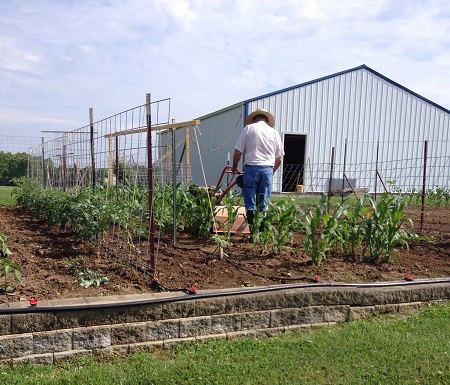Two Shakes of a Lamb’s Tail
 Lambs are small and have short tails. I don’t know if that has anything to do with the origin of two shakes of a lamb’s tail. However, it makes sense to me.
Lambs are small and have short tails. I don’t know if that has anything to do with the origin of two shakes of a lamb’s tail. However, it makes sense to me.
Two shakes of a lamb’s tail means a short period of time.
We use the expression if we plan to do something quickly:
- Work
- School assignments
- Home chores
- Exercise
However, anything completed too quickly leads to problems.
Haste makes waste if we do a poor job. We frequently give a lick and a promise when we need to take one step at a time and do our job right.
Fast work is good. Correct work is better.
Moving too slowly also causes problems.
If we dislike what we do, we are tempted to put it off as long as possible. We become slow as molasses starting and often slower finishing.
Whatever we do, whether fast or slow, let’s give our best.
“Careful planning puts you ahead in the long run; hurry and scurry puts you further behind” (Proverbs 21:5 MSG).
Thanks to Liz Gray for the suggestion. Image by Michael Grundmann from Pixabay.
Do you have an expression you want explained? If so, please comment below.
Subscribe to receive my weekly posts by email and receive a free copy of “Words of Hope for Days that Hurt.”
If you enjoyed this post, please share it with your friends.
 Many of us complain that we have to work like a mule. Our complaints increase if we:
Many of us complain that we have to work like a mule. Our complaints increase if we: We often hear dogs chasing rabbits behind our house. They may or may not catch any rabbits. However, we know the chase ends when the barking stops.
We often hear dogs chasing rabbits behind our house. They may or may not catch any rabbits. However, we know the chase ends when the barking stops. Rabbits are fun when they cause no damage. Chasing rabbits is fun, if we eventually
Rabbits are fun when they cause no damage. Chasing rabbits is fun, if we eventually  After a long hard day, most of us look forward to work in the short rows.
After a long hard day, most of us look forward to work in the short rows. Like Kaleb’s puppy, too many times, I have cleaned with a lick and a promise. What about you?
Like Kaleb’s puppy, too many times, I have cleaned with a lick and a promise. What about you? Sometimes we have to give a lick and a promise.
Sometimes we have to give a lick and a promise. My friend Phyllis recently had an ox in the ditch. She and her husband dressed for church. Then they noticed a cow having trouble birthing its calf. Their cow needed help. Putting
My friend Phyllis recently had an ox in the ditch. She and her husband dressed for church. Then they noticed a cow having trouble birthing its calf. Their cow needed help. Putting  Some work we love. Some work we hate. Much work we do as a labor of love.
Some work we love. Some work we hate. Much work we do as a labor of love.  If you sew, you know that cutting the cloth only begins your task. Preparation is complete. You have your work cut out for you. Yet, you still have most of the work to do.
If you sew, you know that cutting the cloth only begins your task. Preparation is complete. You have your work cut out for you. Yet, you still have most of the work to do. Some quilts are fancier than others. All require hard work. That is true whether you sew your quilt by machine or by hand.
Some quilts are fancier than others. All require hard work. That is true whether you sew your quilt by machine or by hand. What fun to admire the beauty of a new quilt or any job well done. How much greater the satisfaction when you know you did that work yourself.
What fun to admire the beauty of a new quilt or any job well done. How much greater the satisfaction when you know you did that work yourself. Some people go by the book. Others
Some people go by the book. Others 